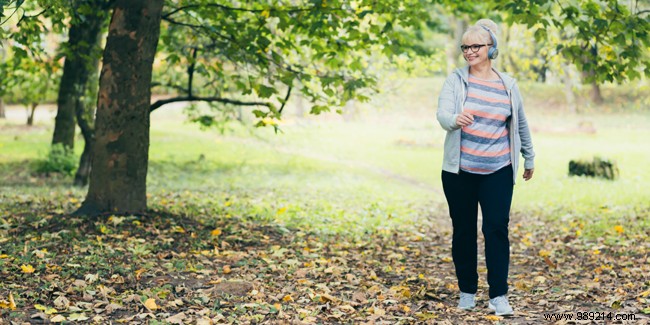
Many causes can be at the origin of a loss of balance in the elderly and therefore with a risk of frequent falls which can have serious consequences on the health of seniors and their autonomy. From a chronic illness to declining eyesight or hearing, through a sedentary lifestyle, malnutrition, dehydration, lack of sleep, or even difficult events such as bereavement, isolation, etc. Knowing how to detect the causes of loss of balance in seniors and how to prevent this problem is important for maintaining good health as you age.
Loss of balance in seniors is first and foremost more frequent for reasons simply related to aging. Indeed, with age, the body, and more particularly the muscles and joints, lose their elasticity. Muscle mass decreases over time and the body becomes less toned, resulting in more frequent loss of balance which increases the risk of falls which can have serious effects on the autonomy of seniors.
A poor diet and the fact of not hydrating enough also have consequences on his state of health and, of course, on the greater frequency of the risks of loss of balance. Many elderly people are in this case because of a lack of appetite often due to aging, but also because of a lack of motivation to prepare good meals, especially for those who live alone. Being overweight or, on the contrary, undernutrition also promotes loss of balance in seniors.
Age-related chronic illnesses, difficult life events, diminished hearing and sight, or lack of sleep can also be the cause of loss of balance in seniors. This is why, in particular with age, regular visits to your doctor are recommended to first monitor your state of health, but also because this health professional can explain to you the risks of your pathologies in terms of loss of balance and inform you about preventive measures to adopt.
One of the causes of loss of balance in seniors is much less known:dental problems. Thus, as indicated by the website pourbienvieillir.fr designed by pension funds and Public Health France, "Dental problems can lead to the risk of falling:as surprising as it may seem, the jaw joint contributes to the construction and preservation of balance". Hence the importance, with age, of continuing to consult your dentist regularly (once a year).
Finally, improper medication can also lead to loss of balance in seniors and increase the risk of falls. This is why it is important to take care not to make mistakes in taking medication, which is often daily in the elderly.
In order to prevent the loss of balance in seniors, it is important to maintain their flexibility which helps to preserve the elasticity of their muscles and to preserve the tone of their body.
Standing up as often as possible is a very simple attitude to adopt and makes it easy to maintain your balance.
Regular physical activity is also strongly recommended, first of all, in general, to stay in good shape, but also to be able to maintain your muscles in particular and thus be able to adapt more easily to situations of loss of balance and limit its consequences in terms of falls.
Continuing to have regular physical activity from the age of 50, avoiding a sedentary lifestyle, is therefore essential. Moving, taking care of your body, can simply involve practicing regular activities such as DIY or gardening for example, a daily walk in your neighborhood, etc.
Seniors can also participate in group physical activities, which are also excellent for morale, and thus practice walking, gentle gymnastics, yoga, aquagym, Nordic walking, tai chi, etc. Sports totally recommended when you get older in order to fight against the reduction of muscle mass in particular, and thus improve your balance and prevent falls which can be the cause of serious health problems and loss of energy. autonomy.
A healthy diet, combined with regular physical activity, also contributes to staying healthy, taking care of your body and maintaining your tone. Consuming balanced dishes and adopting a regular rhythm of three meals a day, to which it is possible to add one or two snacks, constitute the bases of a good diet guaranteeing a healthy lifestyle and staying in shape. Important recommendations to avoid loss of balance in particular, and therefore the risk of falls.
Do not forget to stay well hydrated throughout the day, especially after an effort. Alcoholic beverages are obviously to be banned because they have significant effects on loss of balance and also the risk of falls.
Logically, maintaining and preserving your balance, especially with age, is first and foremost about taking good care of your feet. These parts of the body are those, in fact, which constitute the points of stability on the ground and which support the whole weight of the body.
The first thing to do is to wear good shoes, preferably closed and equipped with non-slip soles, which hold the heel and the arch of the foot well. Safety to avoid loss of balance and falls as much as possible.
Also remember to regularly consult a pedicurist whose job is to take care of your feet and keep them in good "walking" condition.